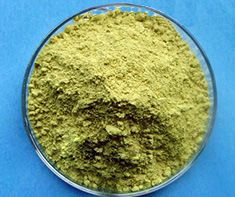Fighting Against Atherosclerosis 95%-98% Quercetin HPLC Quercetin
Hospital Recliner Chair Bed,Hopefull Hospital Recliner Folding Chair Bed,Medical Infusion Chair Medco Medical Equipment Co., Ltd. , http://www.sghospitalbed.com
Plant Origin:  Sophorae Japonica
Part Used: Pagodatree flower bud
Specification: Quercetin 98% By HPLC; Quercetin 99% By UV
CASÂ No.:Â 117-39-5Â
Molecular Formula: C15H10O7
Molecular Weight: 302.23
Melting Point: 314ºCÂ
Picture:
Indications:Â
One of the many health benefits of quercetin is that it acts as a potent antioxidant combating theÂ
destructive "free radical" molecules that play a part in many diseases.
Quercetin also has healthful anti-inflammatory and anti-allergy effects. It inhibits the production and release of histamine and Other allergic/inflammatoryÂ
mediators, making it of value for allergies, particularly allergies to pollen. It may also be helpful forÂ
hayfever, hives, sinusitis, asthma, and inflammation disorders.
Quercetin, along with other flavonoids, can also improve the health of capillaries. In addition, quercetin,Â
along with other flavonoids, can improve the health of connective tissues. Therefore, the many healthÂ
benefits of quercetin include alleviating bruising, edema, varicose veins, and fragile capillaries.
In test tube and animal studies quercetin has shown to have anti-cancer effects. In fact, flavonoids from fruits and vegetables have long been thought to be very importantÂ
substances to possibly help prevent cancer.
One study suggests that quercetin is helpful for prostate health. More specifically, in a double-blind study quercetin was effective in non-bacterial chronic prostatitis (inflammation of the prostate gland).
Test tube, animal, and some population-based studies suggest that quercetin, resveratrol, and catechins -- all flavonoids -- reduce the risk of atherosclerosis. Atherosclerosis is a narrowing of the arteries from a buildup of fattyÂ
deposits called plaque that can lead to heart attack or stroke. However, studies in people are needed toÂ
confirm these findings.
Quercetin has also been shown to be a strong inhibitor of human lens aldose reductase - an enzyme that plays a part in the formation of diabetic cataract, neuropathy, and retinopathy.
Lastly, quercetin enhances the action of vitamin C, another antioxidant.
Â
Â
Â
Â
QuercetinÂ
Plant Origin:  Sophorae Japonica
Part Used: Pagodatree flower bud
Specification: Quercetin 98% By HPLC; Quercetin 99% By UV
CASÂ No.:Â 117-39-5Â
Molecular Formula: C15H10O7
Molecular Weight: 302.23
Melting Point: 314ºCÂ
Picture:
Indications:Â
One of the many health benefits of quercetin is that it acts as a potent antioxidant combating theÂ
destructive "free radical" molecules that play a part in many diseases.
Quercetin also has healthful anti-inflammatory and anti-allergy effects. It inhibits the production and release of histamine and other allergic/inflammatoryÂ
mediators, making it of value for allergies, particularly allergies to pollen. It may also be helpful forÂ
hayfever, hives, sinusitis, asthma, and inflammation disorders.
Quercetin, along with other flavonoids, can also improve the health of capillaries. In addition, quercetin,Â
along with other flavonoids, can improve the health of connective tissues. Therefore, the many healthÂ
benefits of quercetin include alleviating bruising, edema, varicose veins, and fragile capillaries.
In test tube and animal studies quercetin has shown to have anti-cancer effects. In fact, flavonoids from fruits and vegetables have long been thought to be very importantÂ
substances to possibly help prevent cancer.
One study suggests that quercetin is helpful for prostate health. More specifically, in a double-blind study quercetin was effective in non-bacterial chronic prostatitis (inflammation of the prostate gland).
Test tube, animal, and some population-based studies suggest that quercetin, resveratrol, and catechins -- all flavonoids -- reduce the risk of atherosclerosis. Atherosclerosis is a narrowing of the arteries from a buildup of fattyÂ
deposits called plaque that can lead to heart attack or stroke. However, studies in people are needed toÂ
confirm these findings.
Quercetin has also been shown to be a strong inhibitor of human lens aldose reductase - an enzyme that plays a part in the formation of diabetic cataract, neuropathy, and retinopathy.
Lastly, quercetin enhances the action of vitamin C, another antioxidant.
Â
Â
Â
Â